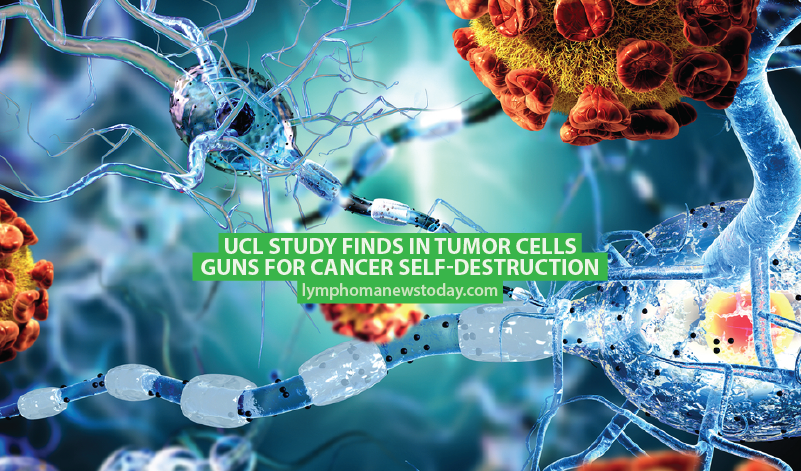
Antigens present in the genes of tumor cells may be used as ammunition against the cancer itself.
The groundbreaking finding, by investigators at the University College London (UCL), may greatly help increase understanding about the genetic complexity of cancers like lymphoma. While further research is needed to establish practical therapies based on the discovery, the research may provide the key to future immunotherapy.
The study was co-authored by Cancer Research UK scientist Sergio Quezada, head of the Immune Regulation and Cancer Immunotherapy lab at UCL Cancer Institute; and by Charles Swanton, a scientist at UCL Cancer Institute and Francis Crick Institute. The two researchers sought to recognize the genetic complexity of cancers and trigger the body’s own immune system against it, even when the disease is in advanced stages.
According to a press release, the discovery is expected to lead the development of new immunotherapy therapies and improve immunotherapy drugs already available.
“The body’s immune system acts as the police trying to tackle cancer, the criminals. Genetically diverse tumors are like a gang of hoodlums involved in different crimes – from robbery to smuggling,” Quezada said. “The immune system struggles to keep on top of the cancer – just as it’s difficult for police when there’s so much going on.”
Quezada said the recent research supports the probability of turning the tables on cancer, and gunning it down in its tracks.
“Instead of aimlessly chasing crimes in different neighborhoods, we can give the police the information they need to get to the kingpin at the root of all organized crime – or the weak spot in a patient’s tumor – to wipe out the problem for good,” Quezada said.
The research, funded by Cancer Research UK and the Rosetrees Trust, was revealed in the article “Clonal neoantigens elicit T cell immunoreactivity and sensitivity to immune checkpoint blockade,” recently published in Science.
According to the press release, when cancer develops in the body, the genetic faults’ diversity may be identified on the surface of cancer cells as unique mutations that occur in different parts of the tumor. As the cancer evolves in a branched way, the genetic diversity arises. The initial mutations are present in all cells and consist on the trunk of the cancer, but other mutations occur in different cells, which are the branches of the disease and what enables the cancer to adapt and become drug resistant.
The researchers found the antigens that flagged the initial mutations, by analyzing data from previous studies that included hundreds of patients. These earliest faults of the disease were present on all cancer cells, instead of on a subset of tumor cells. The investigators then isolated in the lab specific immune cells, known as T-cells, from samples of two patients. They were able to identify the common antigens in all the cancer cells. These potent immune cells have the potential to kill all cancer cells in a tumor, but are switched off by the defenses of the tumor.
These discoveries are fundamental to the development of therapies designed to specifically activate these T-cells and target the genetic signature of the cancer to kill all cancer cells at once.
Swanton called the discovery “exciting.”
“There was evidence that complex tumors with many mutations could increase the chance of the immune system spotting them; now we can prioritize and target tumor antigens that are present in every cell; the Achilles heel of these highly complex cancers,” said Swanton.
He continued: “This opens up a way to look at individual patients’ tumors and profile all the antigen variations to figure out the best ways for immunotherapy treatments to work, prioritizing antigens present in every tumor cell and identifying the body’s immune T cells that recognize them. This is really fascinating, and takes personalized medicine to its absolute limit where each patient would have a unique, bespoke treatment.”
The investigators believe that it will be possible in the future for the research to be used in the development of a therapeutic vaccine able to activate T-cells – or for harvesting, growing and administering such T-cells back into the patient.
“For many years we have studied how the immune response to cancer is regulated without a clear understanding of what it is that immune cells recognize on cancerous cells. Based on these new findings, we will be able to tell the immune system how to specifically recognize and attack tumors,” Quezada said.
Learn more about lymphoma here: http://bit.ly/1UwWKe6
Lymphoma News Today is strictly a news and information website about the disease. It does not provide medical advice, diagnosis, or treatment. This content is not intended to be a substitute for professional medical advice, diagnosis, or treatment. Always seek the advice of your physician or other qualified health provider with any questions you may have regarding a medical condition. Never disregard professional medical advice or delay in seeking it because of something you have read on this website.

